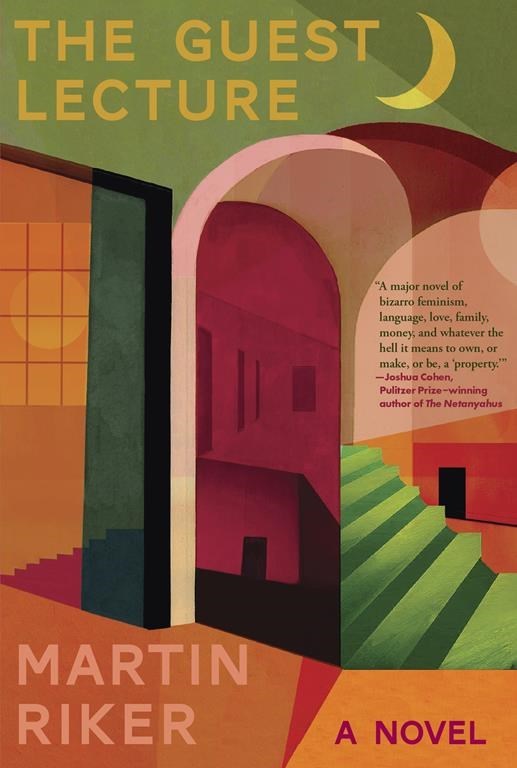“The Guest Lecture,” by Martin Riker (Black Cat)
If you’re ever spent a sleepless night worrying about your career, your family and the gross inequality of American life, then chances are you will love, or at least relate to, “The Guest Lecture” by Martin Riker. Riker, whose last novel was a modern-day ghost story about a man whose soul migrates from body to body in search of the son he left behind, has written a quirky second novel of breathtaking genius.
The story unfolds over a long night in a dark hotel room as a young feminist economist who has recently been denied tenure lies awake beside her sleeping husband and daughter and frets about a talk she is woefully unprepared to give the next day.
Abby decides to practice by using an ancient memorization technique sometimes called a “memory palace.” Specifically, she assigns parts of the lecture to different rooms in her house so that later she can “walk” through those familiar spaces in her mind and remember the talk.
To keep her company, she summons the benign spirit of the English economist John Maynard Keynes, whose essay, “Economic Possibilities for Our Grandchildren,” written on the cusp of the Depression, has served as a lodestar for her academic career.
What first attracted her to Keynes, who famously advocated for deficit spending during economic downturns, was his “pragmatic optimism,” centered on the belief that governments could and should play a benevolent role in citizens’ lives.
The problem is that having lost her prestigious job, she is not feeling particularly optimistic, especially since she is the primary breadwinner in her family and now at risk of losing the very house she is exploring with Keynes.
Riker doesn’t stick faithfully to this bizarre but charming conceit. As Abby and Keynes move from living room to dining room, then upstairs, she is not so much practicing her speech as she is recalling her entire life, or at least the formative moments that shaped her into the highly anxious, exceedingly ethical, fantastically interesting person she is today.
Toward the end of the book, she recalls similar insomniac nights in grad school, when she would turn on the light — which she can’t do now because her family is asleep — and read Keynes. “His voice, his astuteness and humor, his crabbiness, the life in his voice, his way of seeing and thinking about the world that was not just in the ideas … but in the way the voice thought, the way the thoughts turned …” — all that made her love Keynes. Those same qualities, but in Abby, will make readers love her.
Ann Levin, The Associated Press


